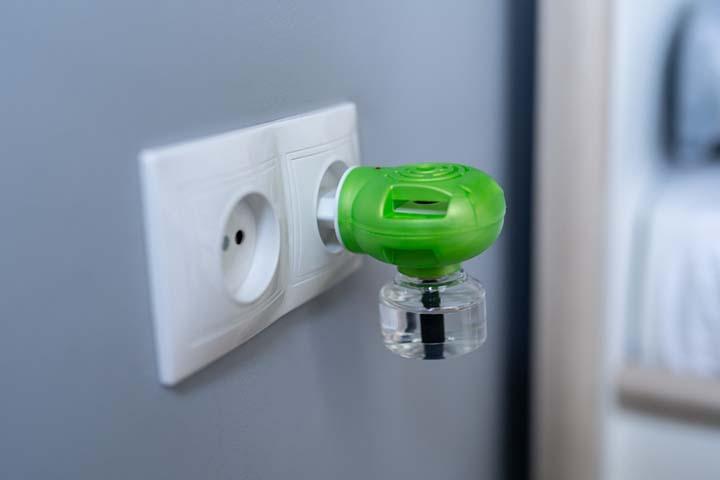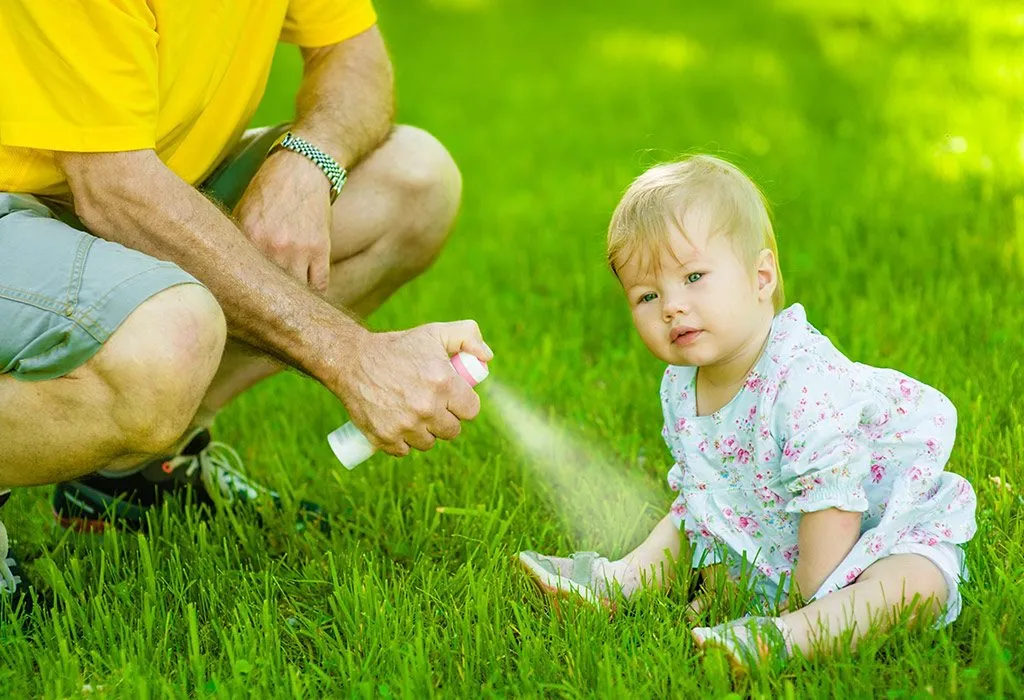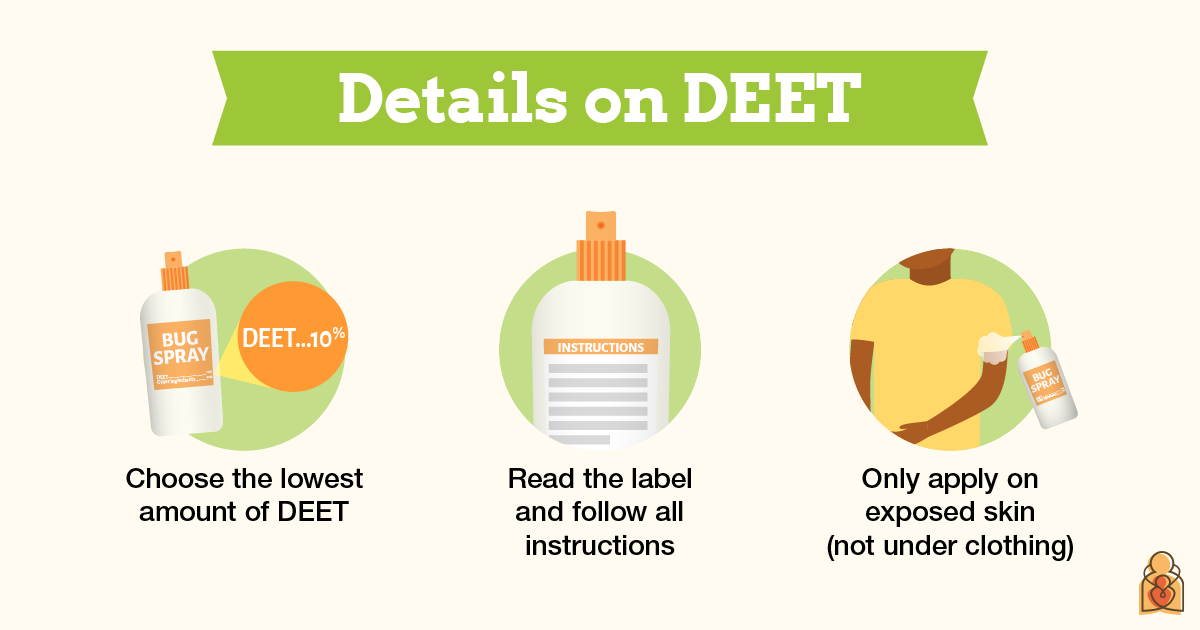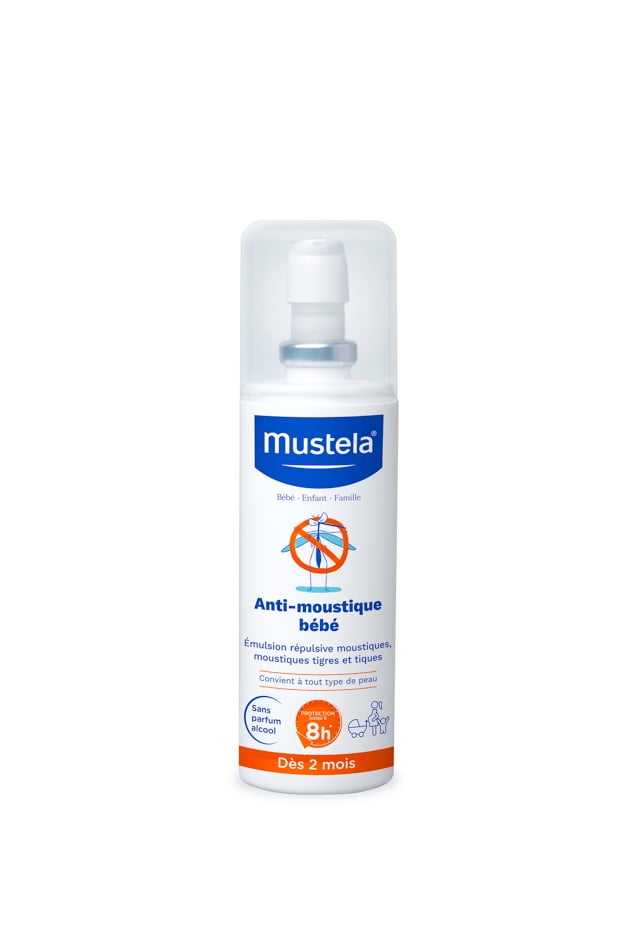Yes, it is safe to use mosquito repellent on babies, but it’s important to choose the right type of repellent and use it cautiously. It’s crucial to use safe and non-toxic mosquito repellents for babies, such as mosquito nets, patches, or fabric roll-ons.
These options are the safest and most recommended for protecting babies from mosquito bites and potential diseases. When it comes to the safety of using mosquito repellent on babies, parents often have concerns about the potential risks and adverse effects.
However, with proper precautions and the use of baby-safe repellents, it is possible to provide protection against mosquito bites without compromising the baby’s health. Let’s explore the guidelines and considerations for using mosquito repellents on babies. Mosquitoes are not only annoying pests but also carriers of various diseases such as malaria, dengue fever, and Zika virus. Protecting babies from mosquito bites is essential, especially in areas where mosquito-borne illnesses are prevalent. However, given the delicate nature of a baby’s skin and developing respiratory system, it’s important to approach the use of mosquito repellents with caution and awareness. When choosing a mosquito repellent for babies, it’s crucial to opt for products specifically formulated and approved for use on infants. These may include mosquito nets designed for cribs, mosquito patches that can be attached to clothing, or fabric roll-ons applied to the baby’s clothes. These options provide a physical barrier or emit natural repellents, reducing the risk of direct contact with the baby’s skin. Furthermore, it’s advisable to avoid using certain types of mosquito repellents that may pose health risks to babies. For instance, mosquito coils and liquid vaporizers can release toxic fumes and chemicals, potentially affecting the baby’s respiratory system and overall well-being. Similarly, the use of essential oils directly on the baby’s skin is not recommended due to the potential for skin irritation and other adverse reactions. In addition to the choice of repellent, the application and timing of mosquito repellents for babies are crucial. It’s important to apply the repellent as per the manufacturer’s instructions, ensuring that it is used in a well-ventilated area and not inhaled by the baby. Additionally, it’s advisable to avoid using repellents during sleep or prolonged periods, and to wash them off once they are no longer needed. The use of mosquito repellent on babies can be safe and effective when approached with care and informed decision-making. By selecting baby-safe repellent options and following recommended guidelines for application, parents can provide protection against mosquito bites while prioritizing the baby’s health and well-being.
Introductory Insights
Ensure your baby’s safety by using mosquito repellents specifically designed for infants. Avoid products containing DEET and instead opt for natural options like mosquito nets, patches, or fabric roll-ons. Prioritize your little one’s well-being by steering clear of toxic chemicals and potential respiratory irritants.
Mosquito Bites And Babies
Mosquitoes are not just irritating pests; they can also pose serious health risks, especially to babies. Their delicate and sensitive skin makes them vulnerable to mosquito bites, which can lead to discomfort, itching, and potential allergic reactions. Additionally, mosquitoes are known carriers of various diseases such as malaria, dengue fever, and Zika virus, making it crucial to protect babies from these harmful insects.
The Dilemma Of Repellent Safety
When it comes to protecting babies from mosquito bites, parents often face the dilemma of choosing a safe and effective repellent. While safeguarding babies from mosquito-borne illnesses is paramount, concerns about the potential risks associated with using repellents on their delicate skin cannot be overlooked. Therefore, it’s essential to weigh the benefits of protection against the potential hazards of repellent use, ensuring that the chosen repellent is safe and suitable for babies.

Credit: www.momjunction.com
Types Of Repellents
Safe mosquito repellents for babies include mosquito bats, nets, patches, and fabric roll-ons. It’s important to avoid using coils, liquid vaporizers, and mats when there’s a baby at home, as inhaling the chemicals can lead to breathing problems and other health issues.
Eucalyptus, lemongrass, lavender, and neem oil are effective in repelling mosquitoes, but they shouldn’t be applied directly to the baby’s skin.
Types of Repellents Chemical-Based OptionsWhen it comes to mosquito repellents for babies, chemical-based options containing DEET or picaridin are effective but may have potential risks.Natural Repellent AlternativesNatural repellents such as essential oils like eucalyptus and lavender offer a safer alternative for babies, but they should be used cautiously to avoid skin irritation.Inhaling chemicals can result in breathing problemsTo protect babies from mosquito bites, consider using safer options like mosquito nets, patches, or fabric roll-ons. Avoid using toxic products like coils or liquid vaporizers in your home.Safety Of Chemical Repellents
When considering mosquito repellents for babies, it’s crucial to prioritize safety. Opt for non-toxic options like mosquito bats, nets, patches, and fabric roll-ons to protect your little one without exposure to harmful chemicals. Avoid using coils, liquid vaporizers, and mats near infants to prevent any potential risks.
Deet And Its Effects On Babies
DEET, also known as N,N-Diethyl-meta-toluamide, is a popular and effective chemical repellent that is commonly used to ward off mosquitoes and other insects. However, there are concerns about its safety for babies. Studies have shown that DEET can cause skin irritation, rashes, and blisters in some babies. In rare cases, DEET has been linked to seizures and other neurological problems in infants and young children.
It is important to use DEET-based repellents with caution and only as directed on the label. Parents should avoid applying DEET-based repellents to their baby’s face, hands, and other areas where they may ingest it accidentally. Instead, parents should apply DEET-based repellents to their own clothing and avoid using them on babies under two months of age.
Picaridin: A Safer Chemical?
Picaridin is another chemical repellent that is considered to be safer for babies than DEET. Picaridin is odorless, non-greasy, and does not cause skin irritation or other adverse effects in most babies. Studies have shown that picaridin is just as effective as DEET in repelling mosquitoes and other insects, making it a popular alternative for parents who are concerned about the safety of DEET-based repellents.
However, it is important to note that picaridin has not been studied extensively in infants and young children, and its long-term effects on their health are not yet known. Parents should always follow the instructions on the label when using picaridin-based repellents on their babies, and avoid applying them to their baby’s face, hands, and other areas where they may ingest it accidentally.
Ultimately, the safety of chemical repellents for babies depends on how they are used. Parents should always read the label carefully, use repellents with caution, and avoid applying them to their baby’s face, hands, and other areas where they may ingest them accidentally. In addition, parents should consider using alternative methods of mosquito control, such as mosquito nets, mosquito coils, and essential oils, to protect their babies from mosquito bites and the diseases they can transmit.
Understanding Natural Repellents
Mosquito repellents are essential for protecting babies from insect bites, but it’s crucial to choose safe and effective options. When it comes to natural repellents, there are various choices that can help keep mosquitoes at bay without exposing your baby to harmful chemicals. Let’s explore two popular natural repellents: citronella and essential oils.
Citronella: How Effective And Safe?
Citronella oil is derived from the leaves and stems of lemongrass. It is commonly used in candles, lotions, and sprays to repel mosquitoes. Studies have shown that citronella can be effective in keeping mosquitoes away, making it a popular choice for natural insect repellents. However, it’s important to use citronella-based products with caution, especially on babies, as direct skin contact may cause irritation.
Essential Oils: Benefits And Precautions
Essential oils such as eucalyptus, lemongrass, lavender, and neem oil are known for their mosquito-repelling properties. When properly diluted and used in diffusers or non-skin applications, these oils can help create a mosquito-free environment for your baby. However, it’s crucial to note that direct application of essential oils to a baby’s skin can lead to skin irritation and allergic reactions. Always consult with a pediatrician before using essential oils on your baby.
Application Techniques
Mosquito repellents can be used on babies, but it’s crucial to follow proper application techniques to ensure their safety and effectiveness.
Proper Repellent Application
When applying mosquito repellent on babies, it’s important to use it sparingly and only on exposed skin. Avoid applying repellent to their hands, near their eyes, or on any cuts or irritated skin. Use your hands to apply the repellent on their face, ensuring that it doesn’t come into contact with their eyes or mouth. If using a spray, spray it onto your hands and then apply it to the child’s skin. Reapply repellent as needed, but avoid overuse.
Combining Sunscreen And Repellent
When combining sunscreen and mosquito repellent, it’s essential to apply sunscreen first and allow it to penetrate the skin before applying the repellent. Avoid using products that combine both sunscreen and repellent, as sunscreen should be reapplied more frequently than repellent. If reapplication is necessary, it’s recommended to wash off the repellent and then reapply both products.

Credit: parenting.firstcry.com
Alternatives To Topical Repellents
Safe alternatives to topical repellents for babies include mosquito bats, nets, patches, and fabric roll-ons. Avoid using coils, liquid vaporizers, and mats around infants to prevent potential health risks. Essential oils like eucalyptus, lemongrass, lavender, and neem are effective, but should not be applied directly to the skin.
Mosquito Nets And Their Efficacy
Mosquito nets are a safe and effective way to protect your baby from mosquito bites. Nowadays, cribs come with attached mosquito nets to keep the insects away from your little one. Mosquito nets act as a physical barrier that prevents mosquitoes from entering the crib or bed. They are made of mesh material that allows air to flow through, ensuring your baby remains cool and comfortable while sleeping. Mosquito nets are available in different sizes and shapes, making it easy to find one that fits your baby’s crib or bed. Using a mosquito net is a safe and non-toxic alternative to topical mosquito repellents.Mosquito Patches And Clothing
Mosquito patches and clothing are also safe alternatives to topical mosquito repellents. Mosquito patches are small stickers that contain natural repellents like citronella and eucalyptus oil. You can stick them on your baby’s clothing or stroller to keep mosquitoes at bay. Mosquito-repellent clothing is specially designed to repel mosquitoes and other insects. These clothes are made of special fabric that contains natural insect repellents. They are safe and comfortable for your baby to wear, and they provide long-lasting protection against mosquitoes.When it comes to protecting your baby from mosquitoes, it’s essential to choose safe and effective alternatives to topical mosquito repellents. Mosquito nets, patches, and clothing are all great options that provide protection without exposing your baby to harmful chemicals. By using these alternatives, you can ensure that your baby remains safe and comfortable while enjoying the outdoors.Age Considerations
When it comes to using mosquito repellent on babies, age considerations are crucial. Understanding when to start using repellent and the appropriate dosage and frequency for infants is essential for their safety.
When To Start Using Repellent
It is recommended to start using mosquito repellent on babies after they are 2 months old. Before this age, it is best to use physical barriers such as mosquito nets to protect them from insect bites.
Dosage And Frequency For Infants
For infants, it is important to use repellents with lower concentrations of active ingredients. Always follow the instructions on the product label and consult with a healthcare provider for appropriate dosage and frequency based on the baby’s age and weight.
Expert Recommendations
When it comes to protecting babies from mosquito bites, it’s important to consider the safest and most effective mosquito repellent options. Expert recommendations from pediatricians and health organizations can provide valuable insights into choosing the right products and following guidelines for application.
Pediatrician-approved Products
Pediatricians often recommend specific mosquito repellent products that are safe for use on babies. These products are formulated with gentle ingredients that provide protection without causing harm to the baby’s delicate skin. When selecting a repellent, look for options that have been pediatrician-approved and are specifically designed for use on infants.
Guidelines From Health Organizations
Health organizations such as the Centers for Disease Control and Prevention (CDC) and the American Academy of Pediatrics (AAP) offer comprehensive guidelines for using mosquito repellents on babies. These guidelines cover important aspects such as the appropriate concentration of active ingredients, recommended application methods, and precautions to ensure safety during use.
Preventive Measures
Protecting your baby from mosquitoes is crucial to prevent bites and potential diseases. Implementing preventive measures is key to safeguarding your little one.
Environmental Controls
- Install mosquito nets on cribs to keep insects away.
- Avoid using mosquito coils as the smoke can be harmful.
- Opt for safe repellents like mosquito bats, nets, patches, and fabric roll-ons.
Behavioral Strategies To Avoid Bites
- Avoid going outdoors during peak mosquito activity times.
- Dress your baby in light-colored, long-sleeved clothing.
- Keep doors and windows closed or screened to prevent mosquitoes from entering.

Credit: www.healthychildren.org
Addressing Parents’ Concerns
When it comes to protecting your baby from mosquitoes, it’s natural to be concerned about using repellents. However, it’s safe to use mosquito repellent on babies if you choose the right ones. Opt for safe options like mosquito bats, nets, patches, and fabric roll-ons, and avoid products like coils and liquid vaporizers.
Common Myths Debunked
Babies can safely use mosquito repellent when guidelines are followed properly.
Repellents containing DEET are safe for babies over two months old.
Citronella-based repellents are effective and safe for babies.
When To Seek Medical Advice
If your baby shows signs of a reaction to repellent, seek medical help immediately.
Consult a healthcare provider before using repellents on infants under two months old.
Seek medical advice if your baby accidentally ingests repellent.
Frequently Asked Questions
What Mosquito Repellent Is Safe For Babies?
For babies, safe mosquito repellents include mosquito bats, nets, patches, and fabric roll-ons. Avoid coils, liquid vaporizers, and mats around babies.
Is Mosquito Repellent Machine Safe For Babies?
Plug-in mosquito repellent machines may contain chemicals that are not safe for babies to inhale, which can cause breathing problems or irritate their eyes or skin. Instead, it is recommended to use safer options like mosquito nets, patches, fabric roll-ons or mosquito bats to protect babies from mosquito bites.
Essential oils like eucalyptus, lemongrass, lavender, and neem oil can be used to repel mosquitoes, but they should not be applied directly to the baby’s skin.
How Do I Protect My Baby From Mosquitoes?
To protect your baby from mosquitoes, use mosquito nets, patches, or fabric roll-ons. Avoid using coils, liquid vaporizers, and mats. Essential oils like eucalyptus, lemongrass, and lavender can repel mosquitoes, but don’t apply them directly to the skin. Choose safe options to keep your baby protected.
Conclusion
When it comes to using mosquito repellent on babies, safety is the top priority. Opt for safe options like mosquito bats, nets, patches, or fabric roll-ons. Avoid products with toxic chemicals, coils, liquid vaporizers, or mats to protect your baby from potential harm.
Choose wisely for a safe and peaceful environment.
Related posts:

I’m MD Tanvir, and I bring years of expertise gained from working closely with pest control companies to the forefront. My journey in the industry has inspired me to launch Bug Battler, a platform aimed at equipping people with the know-how to combat pests autonomously. Through Bug Battler, I aim to empower individuals with practical insights to tackle pest infestations effectively.

